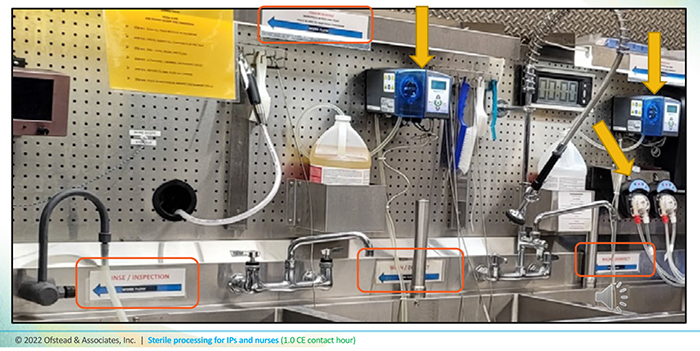Annual awards, new partnership advance paranesthesia nursing

Editor's Note Inspired by a leader in the postanesthesia care department (PACU)? Here’s a chance to provide well-deserved recognition from the entire perioperative community. If you’re a member of the American Board of Perianesthesia Nursing Certification, Inc. (ABPANC), we have something for you as well: exclusive discounts to attend OR…
Study: “Team nursing” at odds with patient safety; alternative staffing solutions recommended

Editor's Note Substituting lower-wage staff for registered nurses leads to additional patient deaths, the Washington Post reported on June 15. The article focuses on a study published in the journal Medical Care, noting that the new research coincides with a nationwide shortage of RNs and “reports of widespread burnout.” Researchers…
Phased-in nurse staffing ratio law draws complaints in Oregon

Editor's Note The state agency overseeing Oregon’s hospitals has received a “flood of complaints” due to a “first-of-its-kind” law mandating progressively stricter nurse and certified nursing assistant (CNA) staffing ratios, according to a June 7 report in KMTR. Passed after extensive negotiations among hospital executives, staff, and nurse unions…
CNOR specialty designations distinguish uncommon skillsets
The Competency & Credentialing Institute (CCI) is excited to announce a new development in our certified perioperative nurse (CNOR®) certification program: the introduction of specialty designations. Now, perioperative nurses can specialize in cardiac, bariatric, orthopedic, or vascular surgery, just as RNs can choose oncology, pediatrics, or emergency. A specialty designation…
Why OR leaders should revisit sterile processing basics

Sterile Processing Department (SPD) managers and technicians know a thing or two about pressure. In a recent webinar covering sterile processing basics, Cori L. Ofstead, MSPH, president and CEO of Ofstead & Associates, Inc, and Abby Smart, MPH, research associate, cited the example of a 480-bed hospital that performed 13,650…
Nursing exam pass rates turn around in 2023

Editor's Note Nursing exam pass rates are on the rise after years of decline during the COVID-19 pandemic, according to a January 1 report from MedPage Today. During 2020 and 2021, the share of US candidates who passed the national licensure exam to work as an RN fell from…
Healthcare worker crisis grows in Florida
Editor's Note Population growth in Florida is amplifying the nationwide shortage of doctors and nurses and putting the state on the verge of a healthcare crisis, Fox 13 Tampa Bay December 27 reports. An estimated 300,000 residents will relocate to Florida annually during the next 5 years. Meanwhile, a third…
The issue of fake nursing diplomas in the healthcare workforce
Initially, the massive nursing credentials scam—disclosed by federal prosecutors early last year—involved three once legitimate, now-shuttered, Florida nurses’ training institutions. Some two dozen criminal operators and recruiters have been arrested and indicted; an as-of-yet unknown number face decades behind bars. According to multiple indictments, most for wire fraud, the scammers…
Updated nursing informatics credential announced
Editor's Note The Nursing Informatics credential is getting an update, from “RN-BC” to “NI-BC,” the American Nurses Credentialing Center (ANCC) reported on November 3. The ANCC manages the Informatics Nursing board certification examination, which provides an assessment of RNs' clinical knowledge and skills in informatics after their initial RN licensure. After…
NCSBN launches new NCLEX exam
Editor's Note The National Council of State Boards of Nursing (NCSBN) on April 3 announced the launch of its updated licensure examination, the Next Generation NCLEX (NGN) Examination, the American Organization for Nursing Leadership (AONL) April 6 reports. The exam was reportedly modified in order to better measure clinical judgment…

 Free Daily News
Free Daily News